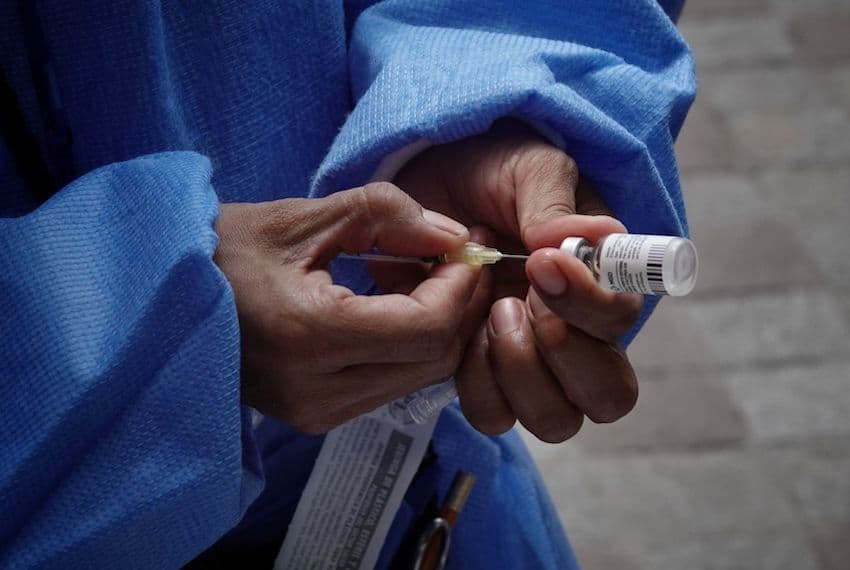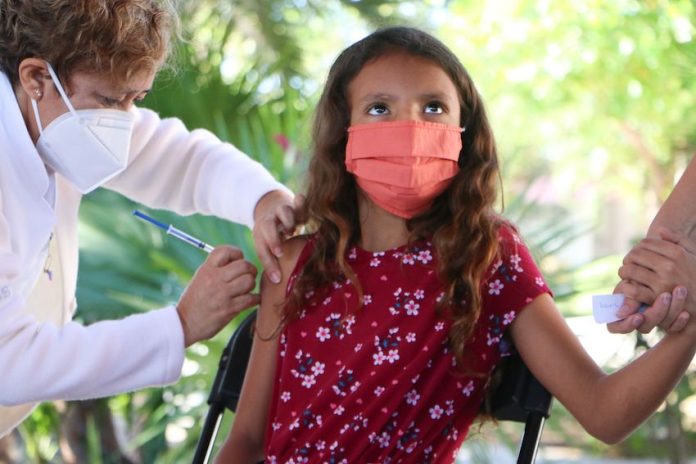Mexico’s Health Ministry (SSa) has issued a public health alert amid a rise in measles cases in the country, recommending that families take children to health centers to get the measles vaccine.
“(To) prevent local-origin cases of measles … the National Center for Child and Adolescent Health (Censia) of the Ministry of Health recommends that parents or guardians take children and adolescents to health units to get vaccinated, in case they lack any doses to complete their immunization program,” the alert says.

Likewise, authorities urged both public and private medical institutions to ensure that they comply with epidemiological surveillance measures and carry out laboratory diagnoses in suspected cases of measles or rubella.
As of the 13th week of the year, Mexico has reported 859 probable cases of measles or rubella which are still being analyzed. Out of these, four cases of measles have been confirmed. Three of these are suspected to have originated outside of Mexico, while one is confirmed to have originated abroad.
The General Directorate of Epidemiology (DGE) reported that the latter case involved a four-year-old child who arrived at the Mexico City International Airport (AICM) from London.
Rosa María Wong, head of the Clinical Research subdivision of the Faculty of Medicine at the National Autonomous University of Mexico (UNAM), said that measles was considered eradicated in the Americas in 2003 due to a lack of endemic cases.
However, since 2017, more cases of measles infections have appeared. Worldwide, 541,000 cases were reported in 2019 and 93,840 in 2020.
“We saw worldwide that in 2019, we had a significant number of cases, but since SARS-CoV-2 arrived, many respiratory and exanthematous viruses stopped circulating, including measles,” Wong explained.
Between 2022 and 2023, however, measles cases worldwide increased 64% — from 171,000 infections to 315,000. This year, dozens of countries are already registering new infections. Guadalupe Miranda, an academic at the Faculty of Medicine at UNAM, warned that the real number of infections may be higher, as some countries fail to identify them in a timely manner.
The last measles outbreak in Mexico took place in 2020, with a total of 196 cases.
Measles is a highly infectious viral disease which mostly affects children. It spreads through nose and throat secretions and is transmitted when an infected person coughs or sneezes, releasing droplets containing the virus into the air.
According to the U.S. Centers for Disease Control and Prevention (CDC), the initial symptoms of measles include a high fever, cough, runny nose and red, watery eyes, followed by a rash three to five days later. Measles can cause serious complications, especially in children under age 5.
With reports from Animal Político, Expansión and El Universal
